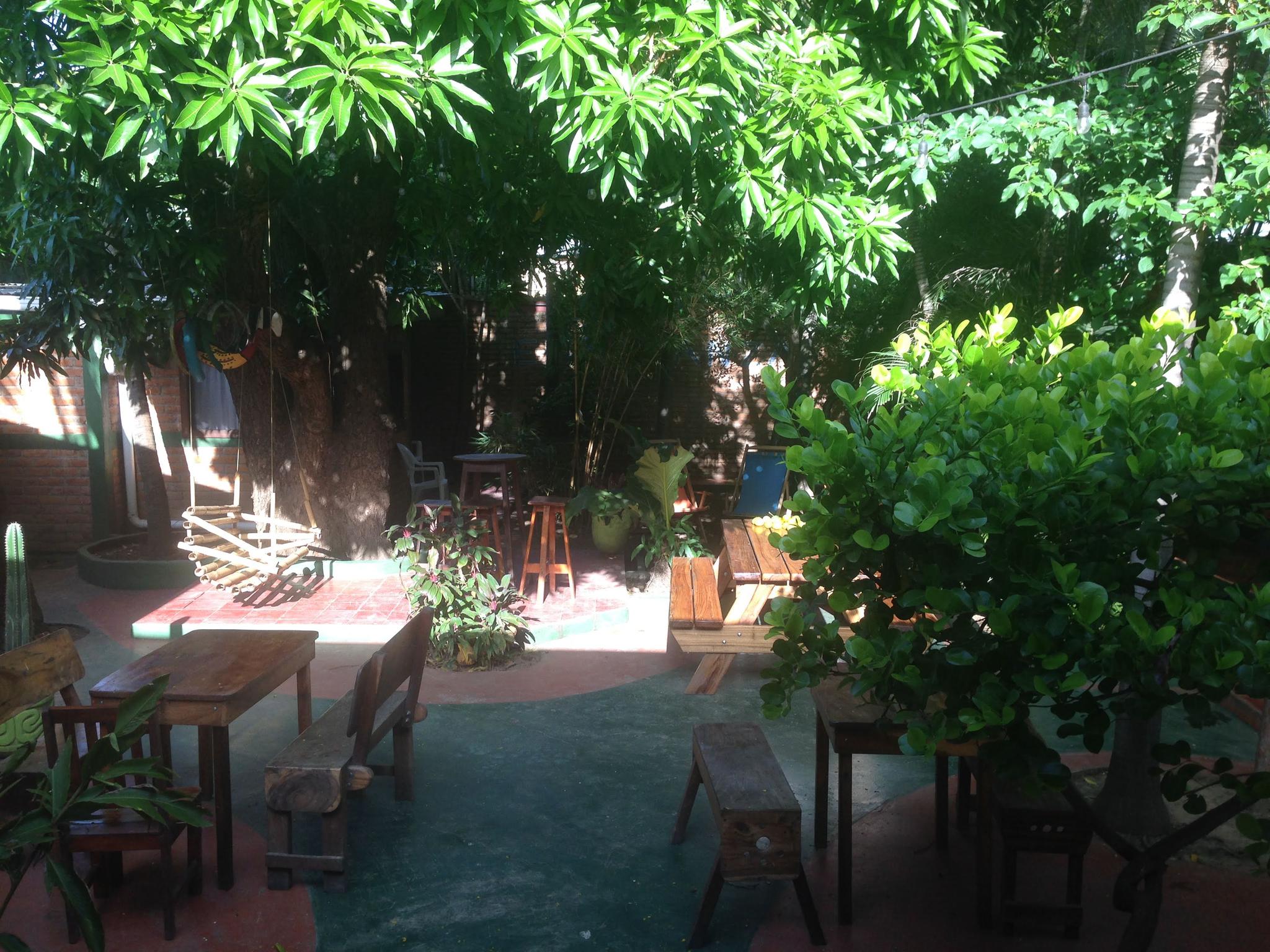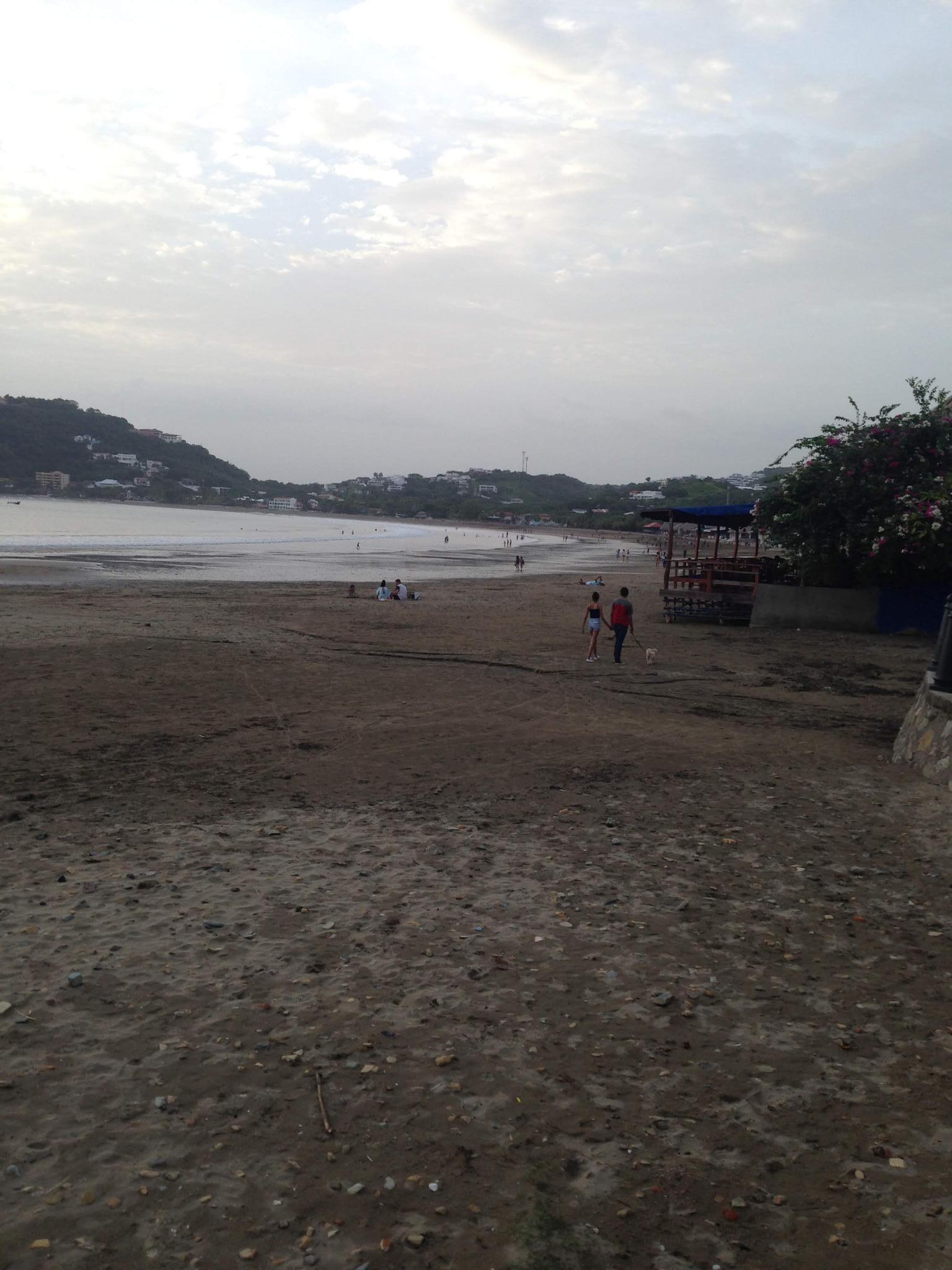Was Marcos Wrong About the South?
Intense anti-government protests cast doubt on the supposedly pro-Sandinista nature of the south
This is the second article in a three-part series on Nicaraguan perspectives and the atmosphere in Nicaragua in mid-2018 at the height of the civil unrest in the nation. See article one, People are Fleeing but the South is Safe and article three, Is Nicaragua Hopelessly Divided?
San Juan del Sur, Nicaragua
July 2018
The eeriness of the town is actually a welcome sight because normally the town would be populated by foreigners partying on the beach. My mother-in-law and I go find a place to stay while my wife and father-in-law stay with our luggage. The lack of tourists means we can probably bargain for a deal. At the same time, I think that it is important to respect the livelihoods of the people whose businesses are likely struggling. How far is too low?
After seeing about five different places, we settle on a hostel that is 18 dollars a night for a private room, private bathroom, and breakfast. It has a great courtyard too. Normally, it would go for 37 a night and most rooms would be full. However, it is nearly empty. The manager tells me they cannot go lower than 18 because there would be no way to pull any profit.
The owners of the hostel are two Spaniards who left for Spain a month ago. They told the three Nicaraguan managers that any profits from the hostel were theirs for the time being. If things improve in the future, they will return.
If the Spaniards had stayed in Nicaragua there would not be enough money to support five people (the managers plus the owners). Given their European passports, the Spaniards have options and can work elsewhere. The Nicaraguans, however, have no other options. The owners could have just as easily shuttered the business while they left for Europe. However, they truly care for their workers and wanted to give them an opportunity to make a living. The Nicaraguan managers had no other employment options in a rapidly worsening economy.
Rosa, one of the managers, says prior to the crisis each manager was making 300 dollars a month, three times the minimum of 100. Now, it is less than half in a good month. The three managers have decided to only take what is absolutely necessary to survive from the hostel’s minimal profits. This will ensure that enough is left over for operations if business gets even slower.

Before the crisis, Rosa’s husband worked as a surf instructor in San Juan del Sur but has now moved to Costa Rica to work in the same field. He is working without permission and lives in fear of being caught. Rosa tells me that her husband is treated poorly in Costa Rica, as are many Nicaraguans. They are treated as second-class citizens who steal Costa Rican jobs. Moreover, Costa Rica is more than twice as expensive as Nicaragua. Any increase in wages for him mostly goes to pay for the higher cost of living. He does, however, send money home. There is work in Costa Rica for him, which is a blessing.
Without her husband, Rosa must raise her three young children alone. Fortunately, her mother lives in town and watches the children while she is at work. The children also spend a lot of time at the hostel. “Things could be worse,” says Rosa. “Many Nicaraguans have no source of income at all now. My husband and I both are at least working.”
She has no idea when she will see her husband again, however. Crossing the border to return home means he must risk getting caught when he returns to Costa Rica. That would leave the family of five dependent on just Rosa. Better to not take the risk and simply maintain family ties via telephone, says Rosa.
I ask Rosa and Thomas, another manager, their opinions on the government. Both believe the current government is to blame for the crisis. Both say that the government has rigged elections and that the corruption has worsened. The 2016 presidential elections were boycotted by the majority because everyone knew they would be rigged, they say. Moreover, according to Rosa and Thomas, the president Daniel Ortega and his supporters changed the constitution to run for another term.
I ask Rosa and Thomas if the south is more pro-Ortega, as Marcos the cabbie told me in People are Fleeing but the South is Safe. No, they argue that the vast majority of the town is anti-Ortega. As proof, they discuss how the government police withdrew completely for about a week. I counter that when we came to town the first thing we saw was a police squadron. Thomas says that the day we arrived was the first time in about a week the police had come back into town.
I ask why the police withdrew. Thomas says that it was an acknowledgement that their presence in town only would incite further tension. Diego, an Italian who lives on the nearby island of Ometepe full-time, says that on Ometepe as well there are no police for the same reason. Diego says that the Sandinista headquarters (Ortega’s party) was burned in Ometepe. The Sandinista headquarters in San Juan del Sur, our current location, are next to our hostel. I wonder if we should be afraid. There is a feeling that something could explode at any moment.
We meet an American couple that had been living for a couple years in Ometepe. They work in tourism. They tell me they left the island because there were practically no tourists. They are considering what to do next. They say they are prepared to leave Nicaragua in a flash if necessary. Just yesterday, a Catholic Church in Managua was shot up by pro-government militia, they say. This could mark a new point in the conflict. Previously, despite the Catholic Church’s anti-Sandinista bent, the church was seen as off-limits. Now, nothing seems to be holy.
Furthermore, the government has recently criminalized protests and support for any organization that protests the government, says Diego. As such, one can ostensibly go to jail for 15 years just for financially supporting the Catholic Church. Parents are now afraid to allow their children to go to protests, says Thomas. While against the government, Thomas has two children of his own and cannot risk imprisonment. He does not attend protests.
At the beach, another man strikes up a conversation with my wife to practice his English. He tells her that he does not like the government but wants things to go back to normal. Businesses are closed. Moreover, the schools are closed and it is affecting his children’s education. Enough is enough, live with an imperfect system, worry about your families.
Who exactly burned the Sandinista headquarters in Ometepe and government buildings in other parts of Nicaragua is up for debate. Thomas claims that a police station was recently burned to the ground but that the police were caught on camera taking away important documents and electronic equipment hours before the arson. The implication is that the government did it to frame anti-government protesters.
Within a few days of arriving, we witness a major anti-government march in town. The main participants in the march wear black hoods and carry makeshift military-style, hand-held mortars that are a cross between a traditional weapon and fireworks. The same black hoods pseudo-mortars are the symbols of protests throughout the nation.
The procession stops in the middle of the town, and the ringleaders in the black hoods fire their pseudo-mortars into the air. Everyone cheers and yells anti-government slogans. The protesters carry a banner that says “We grieve for our fallen brothers” in reference to the protesters killed by the government. As the pseudo-mortars are fired, I tense up in visceral fear. It passes quickly, as I realize that these scary-looking hooded men with weapons are not after me. Still, the feeling that this conflict is right here and now grips me.
I ask a woman watching the protests why people are angry at the government. She says that there is horrible corruption and that the government fixes elections. I ask her why, however, the protests have started this year specifically. These are not new issues. She said that the proposed tax increases in April blew the top off the discontent that had existed for years. Moreover, the violent government reaction further alienated the majority of Nicaraguans. Many people who formerly supported the government are now repulsed. The genie is out of the bottle.
I ask the woman how Nicaraguans will resolve the crisis. She says the only way forward is for the government to leave. There is no other way. She says that the government violence has driven away the tourists. San Juan del Sur and much of Nicaragua depends heavily on tourism. “Once the government leaves, the tourists will return and we will be prosperous again,” she argues.
I finish by asking the woman if the majority of the town is firmly against the government. She says yes, absolutely. The numbers at the protest do not lie. Even in a small town like San Juan del Sur, there are a few hundred people at this rally. But Marcos, the cabbie, said the south was Sandinista territory. He was convincing, and the truth remains that there have been no major clashes between pro and anti-government groups in the south like there have been in the cities further north. Are we crossing a point where the conflict is spreading to the south? Was Marcos completely wrong?
That night I am awakened late by what sounds like gunfire. I jump out of bed, and do not hear more. Was I dreaming? Was it real? Like everything in Nicaragua, the reality is hard to ascertain at a time of political instability. The next day we are set to head to Ometepe, the island in Lake Nicaragua with two volcanoes where the Sandinista headquarters were burned recently. We are foreigners, however, so assume we will simply be witnesses to any conflict. Everyone has an opinion about the conflict and will talk openly. Despite any fear, I am overtaken by the excitement at witnessing history. Besides, things are cheap and the scenery beautiful.

